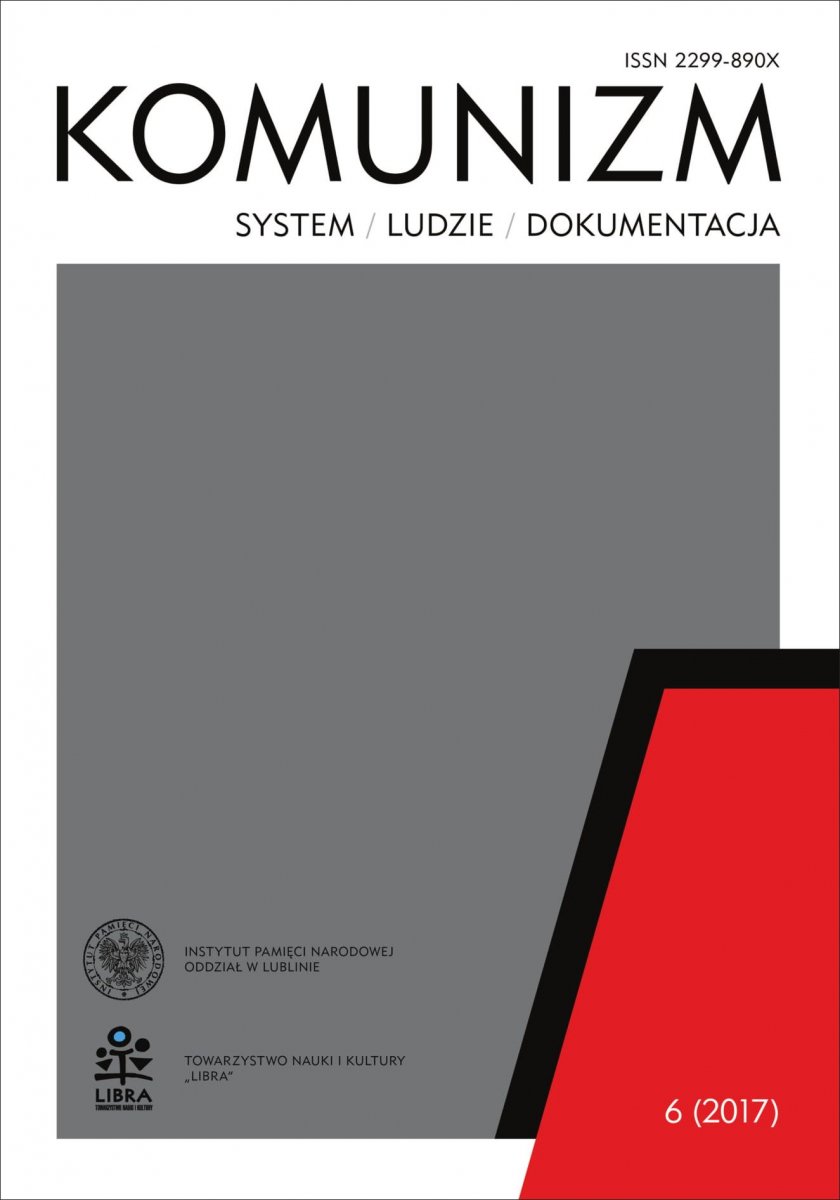Stronnictwo Demokratyczne jako przystań inteligencji
Komunizm: System - Ludzie - Dokumentacja, Nr 7 (2018), strony: 95-115
Data publikacji: 2023-03-23
Abstrakt
The intelligentsia and groups associated with the non-public economy in cities composed the traditional and essential social base of the Alliance of Democrats, satellite to the Polish United Workers’ Party. The supposed mission of the post-war Alliance was transmitting the programme of building socialism (communism) in Poland to those social groups. After the Second World War, the ancestry of the educated rarely dated back to the “old” intelligentsia. In Poland after 1945, this stratum generally suffered “plebification”. The Holocaust of Polish Jews during the Second World War and post-war restrictions followed by the elimination of small-scale industry and private trade, as well as hindering the development of craftsmanship, drastically reduced the number of the petite bourgeoisie. In economic life, on the margins of the “new socialist society” there remained a small group of small manufacturers, “service workers” and merchants. The so-called private initiative environment, subjected to arbitrary measures taken by the communist authorities, emerged. The intelligentsia started to develop an adaptive attitude towards the imposed system, complemented by positivistic notions that entailed serving the public and promoting the ethos of knowledge despite the internal situation. Choosing the Alliance was often an escape from varyingly intrusive propaganda about joining the ranks of the Polish United Workers’ Party. The declared ideological neutrality, the relative freedom of expression on the internal forum, and programme proposals aimed at democratising the state, also attracted the intelligentsia to the Alliance. In 1960, the intelligentsia and intellectual workers constituted 46.8% of the members, dominating the party in the next decade (54–55%). The emergence and operation of “Solidarity” in the 1980s gave rise to a real social and political alternative that attracted the intellectual base of the Alliance, which resulted in a significant decrease in the number of its members.
 Język Polski
Język Polski
 English
English
 Русский
Русский
 Italiano
Italiano
 Français (France)
Français (France)
 Deutsch
Deutsch
 Українська
Українська
 Čeština
Čeština


 PDF
PDF
